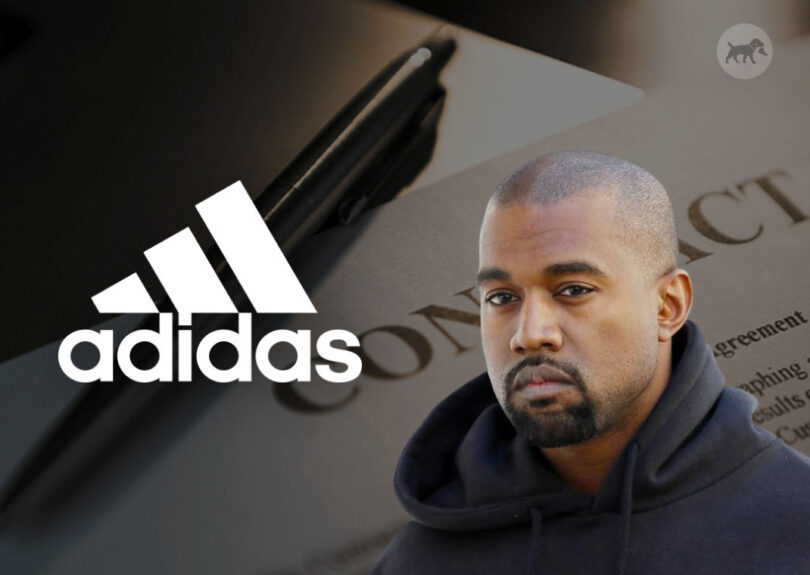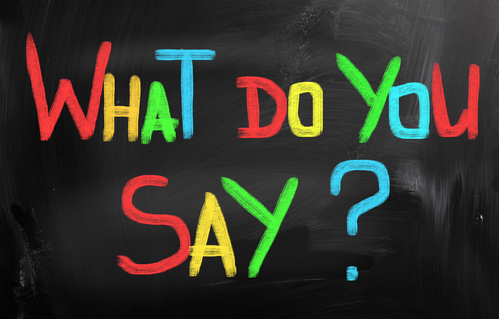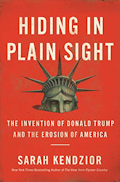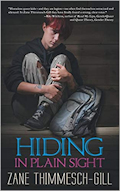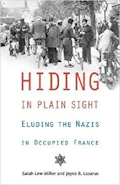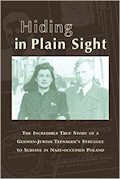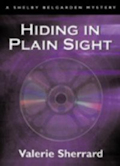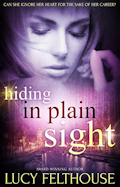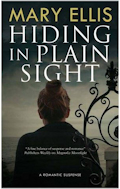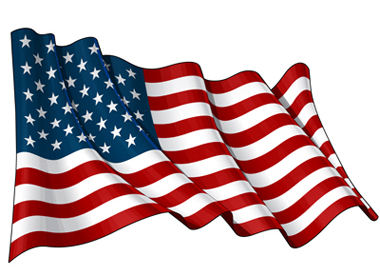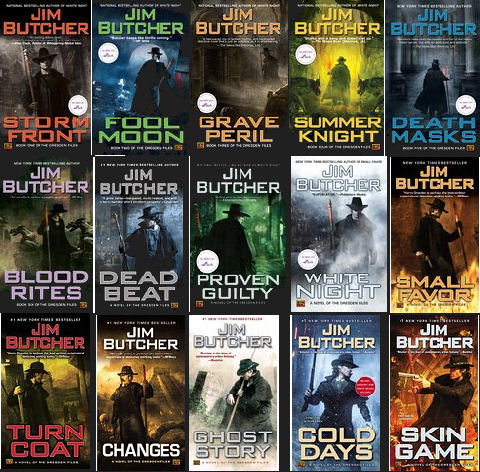
Forbidden Thoughts, editor Jason Rennie (2017).
This book got a lot of play in the last year or so as “Milo” rose to (in)fame with his various political antics. And antics they are, watching him speak or reading his rants, it’s pretty clear that regardless of whether he believes what says or not, he’s not actually interested in anything but self aggrandizement. Mostly his positions are pretty poorly formed and rely on the misdirection of using non-PC language and/or personal attacks, taking everyone’s attention off of the lack of substance to anything he’s saying. Yet somehow, the editor and publisher of this collection of short stories, decided that his name on the cover would be an attraction. It worked. But then, for those seeking to read more of his work, the disappointment of finding that all he did was write a foreword note at the beginning of the book that has little if anything to do with the content. He asserts that there’s never been a collection of such revolutionary non-PC science fiction in all of history. Obviously he’s clueless to the Libertarian origins of much of modern Sci-Fi, or even the genre as a whole. But let’s set all that aside and get on to the meat of the book itself.
There are some great stories in here that save the book from being worthy of nothing more than the scrap heap. The problem is, there are also a bunch, probably more than half, of the stories, that do little more than attempt to incense the reader by being as non-PC as they possibly can, throwing in words and thoughts and actions that are guaranteed to horrify anyone with leanings to the left. But they go way too far, and I don’t mean that because I’m incensed by them, but because they’re little more than the same as I accuse Milo of above. They’re distractions, they’re glaring baubles, designed to do nothing more than distract the reader from the fact that the stories have no substance. They’re just ranting and exaggeration designed for effect and show the authors’ complete lack of story telling ability.
In the end, there’s just not enough to recommend the book. There’s far better, shall we say, non-leftist, non-PC science fiction out there than anything in this book. ☆☆
Infomocracy by Malka Older (2016).
It’s an interesting read, relatively fast paced, and I enjoyed it. On the other hand, it was a little like going to an all you can eat buffet, where you take some of everything, get back to your table, and it’s both too much food to eat, and not all of it quite goes together on the same plate.
Taking the level of suspension of disbelief into the political and information realm, it requires that you believe that countries that currently exist still kinda sorta do, but not exactly, and are instead now connected not by cultural or racial heritage, but by a mosaic of political viewpoints, scattered across the globe. Often they’re completely disparate to their neighbors, and even within individual countries, broken up into a mess of political parties, some run by corporations, some by de facto governments, some by grassroots organizations.
And somehow, within all of this, we’re expected to buy into that all of these same factionalized and fractionalized groups of people and political organizations have agreed to have everything coordinated by one single entity that provides them with filtered information so they can make a decision where they want to live and work at any given moment. Throw in a gratuitous romance with two high powered individuals, who somehow decide, in the midst of all this Information overload, to not bother to check each other out but just go on gut feeling, and then proceed to violate the principles of their careers just because each other was good in bed.
It doesn’t make it a less fun read, but it does make it a little hard to swallow. ☆☆☆☆
The Three-Body Problem by Cixin Liu (2014).
This one was a slow slog to get started on, and several times during probably the first half of it I was tempted to just give up and set it aside. Much of that, I think, is that it felt like a slightly stilted translation – as if the translator was searching for a way to express concepts that he didn’t quite know how to put into English fluidly. I’m glad I stuck through it, as in the end, I liked the way it developed and will probably go on to read the rest of the trilogy. I wasn’t wowed, but I was intrigued.
It’s interesting, given the political climate in which we’re living these days, in various parts of the world, how the premise of first contact is handled. The idea that humans basically divide into two camps (three in the book, but still more or less fall into two ideals) – those who see contact as a threat (in this case an explicit one) and do all in their power to resist, and those who see it as an inevitability with which they collaborate. Kind of reminds me of the current sci-fi television show Colony.
I also liked the undercurrent of the conflict between science and religion, though I think it’s perhaps drawn as too starkly a black and white issue, one or the other. That probably fits more the Chinese cultural model of what science and religion are all about (though I’m no expert on Chinese culture), at least from what I’ve gleaned over the years. ☆☆☆
The Gourmet Detective mystery series (8 volumes), by Peter King (1996-2003).
Okay, hmm… I’ve read the whole series now. I’m not going to do individual book reviews, some of them are better than others, but they’re all enjoyable, quick reads. Then again, throw gourmet food and wine into anything and I’m likely to add some points to it in my mind. Bizarrely, though, given that I gave all the books three stars, I don’t know that I recommend them. Had they been written fifty years ago, I’d give them some more slack, but here are my issues with, well, all of them:
The gourmet detective himself, our protagonist, is an unlikable twit. He’s a middle aged, pretentious white man, with delusions of self importance. He fancies himself a ladies man and, of course, manages to get one or another into bed (trailed off, never portrayed, just make sure we know it happened, wink, wink) in all or almost all the books. He’s misogynistic, racist, and classist. He fancies himself a connoisseur of all things food and wine, and throws about names and terms, most of which the average reader will not have heard of, and will probably just move past without much thought. The problem is, he’s pretty much clueless and the mistakes in his descriptions of various ingredients, dishes, and bottles of fermented grape juice are legion.
In short, and yes, I realize I’m generalizing and could be accused of bias myself, he’s the sort of detective that a 70+ year old retired upper middle class British metallurgical engineer (who apparently at some point went to the Cordon Bleu cooking school to be trained as a chef, though my bet is he just took a few cooking classes for home cooks, then again, who knows, but it seems he did it after retiring at some point in his 70s) would reimagine himself to be if he were to become a food detective. In short, a sort of Walter Mitty alter ego. ☆☆☆
Hillbilly Elegy: A Memoir of a Family and Culture in Crisis by J.D. Vance (2016).
You know the running joke where people start comparing how hard they had it growing up… it starts with something like “we had to walk 5 miles to school every day…” and ends up with things like “uphill both ways” “cardboard boxes for shoes”, etc., etc.? This book is that done in long form. It’s an ostensible memoir from someone who grew up in a disadvantaged, poor community (except he really didn’t, he grew up skirting around it, because he actually spent most of his childhood living with or near relatives or step-relatives who were fairly well off and encouraged him to stay away from that community) who spends nearly 300 pages trying to convince us that his particular disadvantaged, poor community has it worse than any other one. And he also ricochets between being pretentious about his own life and condescending about his roots and the people who still live there, and trying to hold them up as somehow better by virtue of being in worse straits than how he imagines (with no evidence that he has any experience of) other disadvantaged, poor communities to be. Basically it’s a barely veiled tome touting “Hillbilly (i.e., poor white) Lives Matter More” and as such is just as egregious as much of the BLM movement comes across at times. ☆☆
Daimyo by S. Lee Lyndon (2014-2015).
Really enjoyed this entire trilogy. It was an interesting glimpse into a culture and period that I’m not overly familiar with, other than just peripherally from being into the martial arts world. It would be a complete spoiler to tell you what the overall arc of the story is, so let’s just say it covers the adventures of a young Japanese fisherman as he matures in life. In the end, while a totally logical step by step, the overall arc of the three books is a bit far-fetched, but fun to follow along. It’s a sort of novel form of the theory of inheritance of acquired characteristics, or adaptation, sometimes called Lamarckism, i.e., that somehow or other non-biological accomplishments and internalized histories can be passed down genetically to the next generations (pretty much a dismissed idea in the genetic world). Still, a very enjoyable read. ☆☆☆☆
Strangers in Their Own Land: Anger and Mourning on the American Right by Arlie Russell Hochschild (2016).
This one was as difficult to read as it probably was to write. An outsider attempts as close as possible, an insider view of a particular culture, in this case, far right wing, for the most part fundamentalist Christian, Tea Party voters, from an industrial area in Louisiana. She ingratiates herself into their world and admirably does her best to tell their stories, particularly what has led to their political alignment and voting (what’s often talked about in left wing media as “why do these people vote against their best interests?”). She succeeds in making it interesting, and even in giving a decent view into the logic and thought that these folk use. At the same time, if it was at any point her intention to make them look actually logical or sensible, she fails, because bluntly, they come across looking more moronic than the so-called “liberal media” has ever portrayed them. Maybe that was her real, behind the scenes intention from the start. ☆☆☆
Sixteen books seems enough to give you some reading material for now…. Enjoy!





